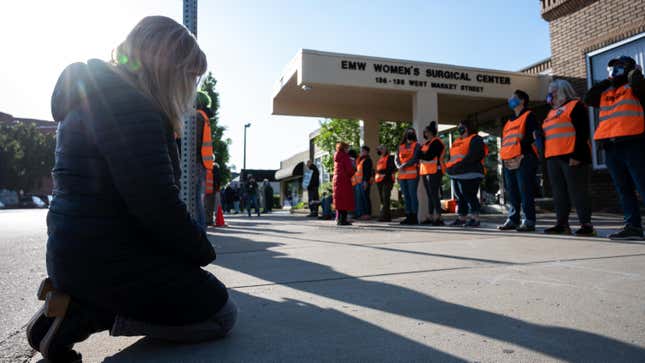Kentucky’s 2 Abortion Clinics Can Reopen—For Now
A federal judge blocked the law that recently ended abortions in the state, but the case isn't over yet.
AbortionPolitics
d

On Thursday, a federal judge temporarily blocked an omnibus package of abortion restrictions that effectively ended legal abortion in Kentucky as of April 13. The decision opens the door for the state’s two clinics, EMW Women’s Surgical Center and Planned Parenthood, to resume providing abortions—at least for now.
The bill, H.B. 3, contained not only an unconstitutional 15-week ban, but also required Kentucky providers to report extensive, unnecessary information about each patient to the state and required providers of medication abortion to register with the state. Providers said it was literally impossible to comply with certain provisions because the state systems didn’t yet exist, so they felt forced to stop providing abortions rather than be accused of breaking the law.
-

-

-

-

-

-

-

-

-

-

-

-

-

-

-

-

-

-

-

-

-

-

-

-

-

-

-

-

-

-

-

-

-

-

-

-

-

-

-

-








































